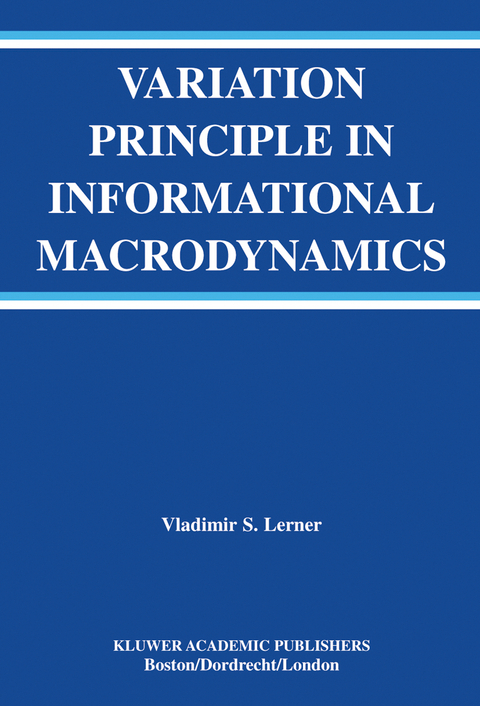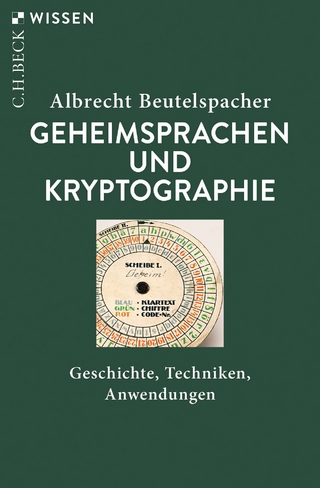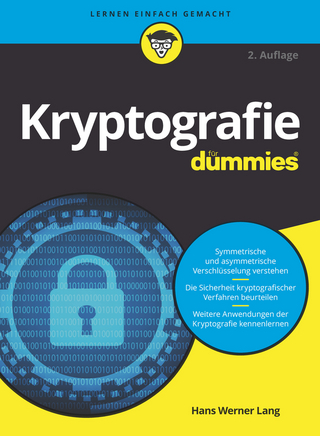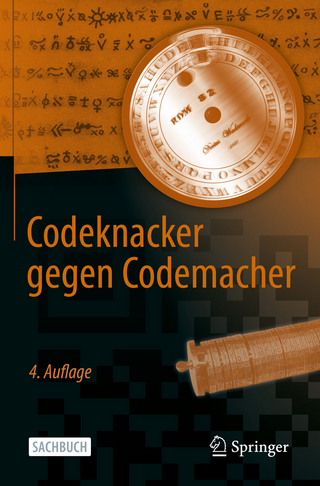
Variation Principle in Informational Macrodynamics
Seiten
2003
Springer-Verlag New York Inc.
978-1-4020-7465-3 (ISBN)
Springer-Verlag New York Inc.
978-1-4020-7465-3 (ISBN)
Introduces the process' integral information measure, which has a distinctive difference from information approaches that use an entropy function. The mathematical formalisms and methods, implemented in the forms of computer models, algorithms and programs, provide tools for Information Systems' Modeling.
Information Macrodynamics (IMD) belong to an interdisciplinary science that represents a new theoretical and computer-based methodology for a system informational descriptionand improvement,including various activities in such areas as thinking, intelligent processes, communications, management, and other nonphysical subjects with their mutual interactions, informational superimposition, and theinformation transferredbetweeninteractions. The IMD is based on the implementation of a single concept by a unique mathematical principle and formalism, rather than on an artificial combination of many arbitrary, auxiliary concepts and/or postulates and different mathematical subjects, such as the game, automata, catastrophe, logical operations theories, etc. This concept is explored mathematically using classical mathematics as calculus of variation and the probability theory, which are potent enough, without needing to developnew,specifiedmathematical systemicmethods. The formal IMD model automatically includes the related results from other fields, such as linear, nonlinear, collective and chaotic dynamics, stability theory, theory of information, physical analogies of classical and quantum mechanics, irreversible thermodynamics, andkinetics. The main IMD goal is to reveal the information regularities, mathematically expressed by the considered variation principle (VP), as a mathematical tool to extractthe regularities and define the model, whichdescribes theregularities. The IMD regularities and mechanisms are the results of the analytical solutions and are not retained by logical argumentation, rational introduction, and a reasonable discussion. The IMD's information computer modeling formalism includes a human being (as an observer, carrier and producer ofinformation), witha restoration of the model during the objectobservations.
Information Macrodynamics (IMD) belong to an interdisciplinary science that represents a new theoretical and computer-based methodology for a system informational descriptionand improvement,including various activities in such areas as thinking, intelligent processes, communications, management, and other nonphysical subjects with their mutual interactions, informational superimposition, and theinformation transferredbetweeninteractions. The IMD is based on the implementation of a single concept by a unique mathematical principle and formalism, rather than on an artificial combination of many arbitrary, auxiliary concepts and/or postulates and different mathematical subjects, such as the game, automata, catastrophe, logical operations theories, etc. This concept is explored mathematically using classical mathematics as calculus of variation and the probability theory, which are potent enough, without needing to developnew,specifiedmathematical systemicmethods. The formal IMD model automatically includes the related results from other fields, such as linear, nonlinear, collective and chaotic dynamics, stability theory, theory of information, physical analogies of classical and quantum mechanics, irreversible thermodynamics, andkinetics. The main IMD goal is to reveal the information regularities, mathematically expressed by the considered variation principle (VP), as a mathematical tool to extractthe regularities and define the model, whichdescribes theregularities. The IMD regularities and mechanisms are the results of the analytical solutions and are not retained by logical argumentation, rational introduction, and a reasonable discussion. The IMD's information computer modeling formalism includes a human being (as an observer, carrier and producer ofinformation), witha restoration of the model during the objectobservations.
I. The IMD Essence and Concepts.- 1. Introduction.- 2. The Information Modeling Concepts.- 3. General Macrosystemic Functions.- 4. Main Macrosystemic Equations and Information Analogies.- 5. The IMD’s Relations to the Fundamental Sciences.- II. Mathematical Foundation of Informational Macrodynamics.- 1. Variation Problem for Dynamic Informational Modeling of Random Process.- 2. The Space Distributed Macromodel.- 3. The Optimal Time-Space Distributed Macromodel (OPMC) with the Consolidated States.- III. Applications.- 1. Solution of the Applied Problems on Examples.- 2. A Review of the Main Applications.- Conclusion.- References.
| Erscheint lt. Verlag | 31.5.2003 |
|---|---|
| Reihe/Serie | The Springer International Series in Engineering and Computer Science ; 736 |
| Zusatzinfo | XIII, 266 p. |
| Verlagsort | New York, NY |
| Sprache | englisch |
| Maße | 155 x 235 mm |
| Themenwelt | Informatik ► Theorie / Studium ► Kryptologie |
| ISBN-10 | 1-4020-7465-4 / 1402074654 |
| ISBN-13 | 978-1-4020-7465-3 / 9781402074653 |
| Zustand | Neuware |
| Haben Sie eine Frage zum Produkt? |
Mehr entdecken
aus dem Bereich
aus dem Bereich
Geschichte, Techniken, Anwendungen
Buch | Softcover (2022)
C.H.Beck (Verlag)
9,95 €
Die faszinierende Geschichte der Verschlüsselung
Buch | Softcover (2022)
Springer (Verlag)
34,99 €


